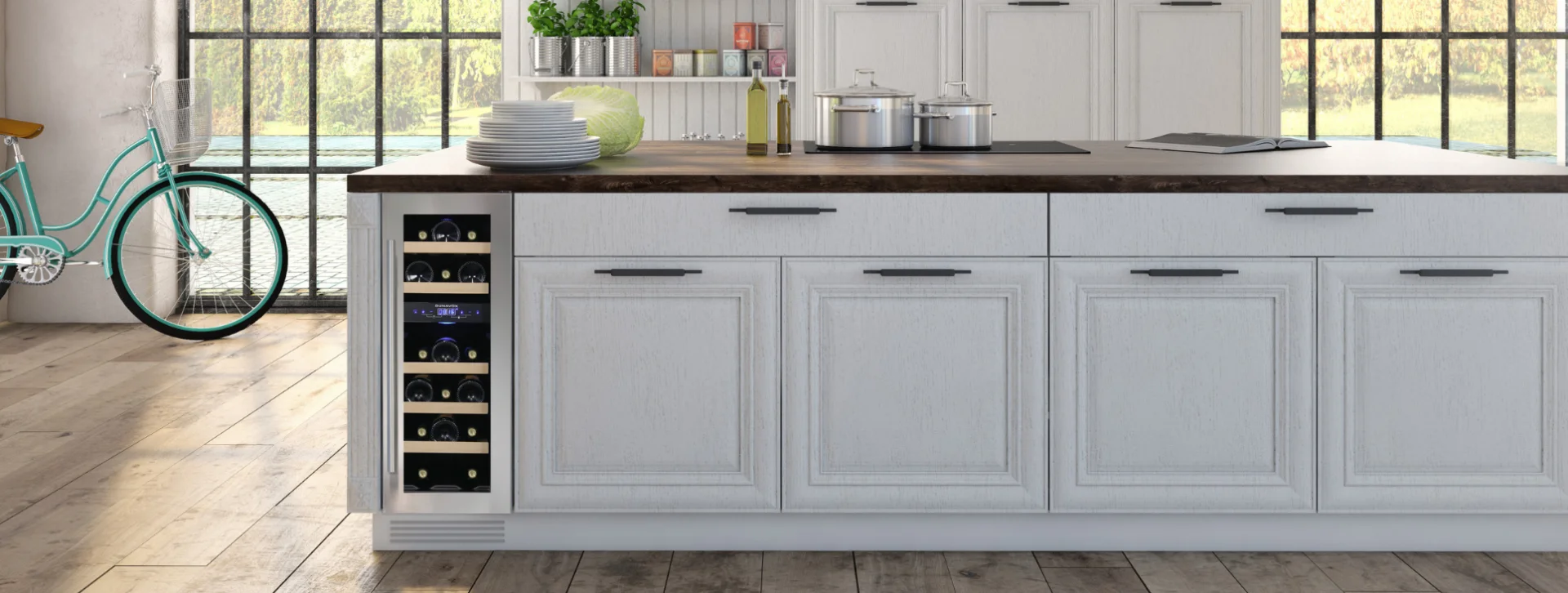
No matter how big or small your wine collection is, you should be storing it in the best possible way. It doesn’t matter whether you’re storing your wine collection in the short term or you’re storing it in the long term for ageing - you should still consider the main storage factors that can affect how your wine looks, smells, and of course, tastes.
There are certain do’s and don’t involved in wine storage, from considering temperature to choosing the right wine storage space. In the summer, there may be even more that you need to consider as the ambient temperature rises. If you want some helpful tips for storing your wine this summer, you’re in the right place. Keep reading for our top wine storage tips for this summer.
Temperature is one of the most important factors that you should consider when storing your wine all year round. However, in the summer, it’s more important than ever to keep your wine cool, as the ambient temperature rises. Wine temperature is particularly important as the temperature can affect the chemical processes that occur in the wine, which includes the ageing process.
Red wine and white wine have different storage temperatures for short-term storage or serving - white wine is best stored at cooler temperatures (typically between 7–12 °C depending on the style), and red wine is often best stored at room temperature (typically between 15–20 °C). However, in the long term, you can store your red, white, and sparkling wines at the same temperature - between 11°C and 14°C.
If you want to store your wine for serving while also having bottles stored in the long term for ageing at the same time, you could purchase a dual-zone wine cooler or a multi-zone wine cooler. This maintains two or three temperature zones within the same unit, making it a great wine storage solution. As well as ensuring that your wine doesn’t get too warm or freeze, you should also try to ensure that the temperature is maintained. Fluctuating temperatures can affect wine as much as vibrations and other storage factors - which is why most wine storage solutions have precise temperature controls.
Many people make the mistake of storing their wine in their regular kitchen refrigerator. This may be okay for short periods of time, but this should never be done in the long term - especially for ageing. Although it may be the easiest and most convenient way to store your wine, your fridge isn’t the right storage space for your wine as it doesn’t consider all of the important storage factors such as humidity or vibrations.
First of all, you store food in your kitchen fridge - do you really want your ageing bottle of Merlot to smell like roast beef and onions? Another important reason that you shouldn’t store your wine collection in your kitchen fridge is that your fridge doesn’t provide the right humidity levels. They remove humidity, which is why your fruit often shrivels up quickly in the fridge. Your wine collection needs humidity in order for the cork to remain moist and in place. We’ll talk more about why your wine needs humidity later on.
Although this may be obvious, you should always avoid storing your wine in sunlight. Sunlight (or more specifically, the UV rays found in sunlight) can be a quick ruiner of wine, and can affect the way your wine smells, tastes, and looks. If you place your wine in sunlight, it will undergo irreversible chemical reactions and end up tasting bitter and generally unpleasant. Most reds come in either green or dark brown bottles which offer some UV protection - but not enough to effectively protect your wine from chemical reactions for long periods of time.
However, UV light isn’t just found in sunlight - you should be careful when choosing lighting around your wine collection. Regular light bulbs also give off heat, which can speed up the ageing process of your wine. Many wine storage spaces such as wine coolers, wine cabinets, and wine cellars feature LED lighting. LED lights create a soft glow but don’t give off heat, and don’t harm your wine in any way.
Humidity is one of the most important factors that you need to consider when you’re storing your wine collection, especially in the long term. In the summer months, you may experience higher levels of humidity. When storing your wine collection, you don’t want to expose your wine to too much humidity as moisture can gather around the bottle causing the label to peel and encouraging mould growth.
However, your wine needs a little humidity in order for the cork to remain moist and in place. If you store your wine in a space with too little humidity, then the cork could dry out and slip out of place - exposing your wine to oxygen. This can be a quick destroyer of wine, so be sure to regulate the humidity levels in your storage space.
One of the best places that you can store your wine collection is a wine cooler or a wine cabinet. Wine coolers are the perfect space for storing your wine collection for shorter periods of time, especially for serving. Wine cabinets are designed to store your wine for longer periods of time, and are perfect for ageing your wine.
Both wine coolers and wine cabinets consider the important storage factors - temperature, sunlight, humidity, and vibrations. Wine coolers and cabinets can come in all shapes and sizes, storing as little as five bottles to well over 100 bottles. However, they come in three designs - freestanding, built-in, and fully integrated. You can also find wine cabinets and wine fridges with extra features such as locks, odour elimination, or door alarms for your convenience.